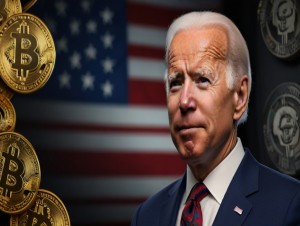Hangzhou, China – In a groundbreaking move, China has launched a state-of-the-art data exchange powered by blockchain technology. This monumental step, announced during the 2023 Hangzhou Summit, promises to revolutionize the way enterprises buy and sell Web3 data. With over 300 enterprises on board, including tech giants Alibaba Cloud and Huawei, the Hangzhou Data Exchange is poised to become a significant player in the global data market.
The rise of the Hangzhou data exchange
The Hangzhou Data Exchange is not just another data platform. It is a testament to China’s commitment to harnessing the power of blockchain for enterprise-level applications. According to reports from August 23, this exchange will be the hub for trading enterprise IT data, leveraging the robustness and security of distributed ledger technology.
One of the standout features of this platform is its promise of immutable and traceable exchange trades. In an era where data breaches and privacy concerns are rampant, such a feature is invaluable. Chen Chun, the director of the National Laboratory of Blockchain and Data Security, shed light on the platform’s capabilities. He remarked, “[The Hangzhou Data Exchange] employs cutting-edge blockchain, privacy computing, and other technologies to ensure trusted data sharing and effective utilization across various departments and regions, all while ensuring data security and privacy.”
Hangzhou’s digital economy
Hangzhou’s commitment to digital innovation is not new. In 2022, the city’s digital economy sector reached an impressive milestone, surpassing 500 billion Chinese yuan (approximately $69 billion). This figure accounted for a staggering 27% of the city’s GDP. Such numbers are indicative of Hangzhou’s position as a frontrunner in the digital economy race, and the launch of the Hangzhou Data Exchange only solidifies this status.
However, it’s essential to understand the broader context. While China has been stringent in its approach towards private blockchain enterprises, it has always shown unwavering support for government-led blockchain initiatives. This dual approach underscores China’s vision of harnessing blockchain’s potential while ensuring it aligns with national interests.
China’s blockchain ambitions
The Hangzhou Data Exchange is just one piece of the puzzle in China’s grand blockchain vision. During the 2023 Shanghai Cooperation Organisation (SCO) Conference’s inaugural session, Chinese President Xi Jinping emphasized the pivotal role of central bank digital currencies (CBDCs). He highlighted their significance in “expanding the share of local currency settlements of SCO countries.” This statement came on the heels of a massive airdrop of the digital yuan CBDC, where over 100 million yuan (around $13.8 million) was distributed to Chinese residents to boost domestic spending.
However, it hasn’t been smooth sailing for all of China’s blockchain ventures. A notable example is the much-anticipated national nonfungible token exchange, CDEX. Despite initial reports from Cointelegraph on December 28, 2022, suggesting that the platform was nearing its launch, it remains under development. This delay underscores the challenges inherent in pioneering new technologies, even for a tech powerhouse like China.
Conclusion
China’s unveiling of the blockchain-powered Hangzhou Data Exchange is a significant step forward in the world of Web3 data trading. With the backing of major enterprises and the promise of secure, immutable data trades, the platform is set to make waves in the global data market. While challenges remain, China’s commitment to blockchain innovation is clear, and the world will be keenly watching its next moves.





